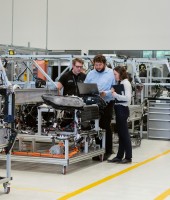The Future of Human-Machine Cooperation in the Workplace: How Will AI Impact the Development of Human Potential?
Webinar organized within the framework of the "Positive Future" initiative with the participation of Karim Jebari (Institute for Futures Studies) & Markus Furendal (Stockholm University)
Presentation
There are two main scenarios for how the development of AI in the workplace will impact labor markets: (1) replacing workers with machines; and (2) using machines to improve worker productivity.
In this context, it is often argued that (1) could lead to mass unemployment and that (2) would therefore be the more desirable outcome. However, it is rarely noted that the second, “labor enabling” scenario lumps together two very different possibilities: human augmentation and human stunting.
This discussion will focus about the future of work in the age of increasingly complex cooperation between humans and intelligent machines.
Karim Jebari est chercheur à l'Institute for Futures Studies. Il a soutenu sa thèse de doctorat en 2014 à l'Institut royal de technologie (KTH). Cette thèse portait sur l'éthique appliquée et en particulier sur la manière dont nous devons nous situer par rapport aux risques et aux opportunités de l'innovation technologique. Karim Jebari s'intéresse aux questions liées à la philosophie politique, à la bioéthique et à la philosophie des sciences.
Markus Furendal est chercheur postdoctoral au département des sciences politiques de l'université de Stockholm, où il étudie des questions liées à la politique, à la philosophie et à l'économie. Il travaille actuellement sur un projet concernant la gouvernance mondiale de l'intelligence artificielle et la manière dont les avantages et les inconvénients créés par une IA de plus en plus performante devraient être répartis.
Mandatory registration here
|
|
|
|
|
|

